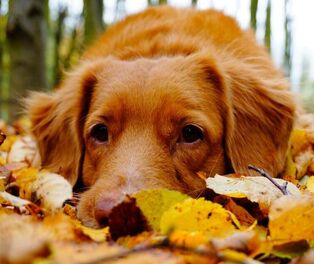Laurie Anne Walden, DVM Photo by Tereza Hošková Photo by Tereza Hošková Cancer is most common in older animals but can develop in animals of any age. Cancer can affect almost any part of the body, so the symptoms vary. The earlier cancer is found, the better for the pet. Lumps Lumps and bumps on or under the skin are usually benign, but some are malignant (cancerous). Any lump that’s the size of a pea or larger and present for at least a month, or one that’s rapidly enlarging or changing in appearance, should be checked by a veterinarian. It’s not possible to tell if a lump is cancerous just by the way it feels. Diagnosis usually requires analyzing a sample of the lump under a microscope (see Skin Lumps in Dogs and Cats for more information). Changes in Weight Unexplained or sudden weight loss is a cause for concern. Many diseases, including cancer, can cause weight loss. Unexpected weight gain could also be a sign of cancer if it’s caused by fluid buildup. Decreased Energy Playing less, sleeping more, and moving more slowly could be effects of aging but might be caused by pain or an illness like cancer. Don’t assume that pets (especially seniors) that are slowing down or sleeping a lot are just old or tired; have a veterinarian examine them. Changes in Appetite Cancer often causes a drop in appetite. Reluctance to eat could also be caused by dental disease or other medical problems. Vomiting or Diarrhea Digestive trouble like vomiting and diarrhea is very common in dogs and cats. Vomiting or diarrhea that lasts longer than a few days and doesn’t get better with treatment—especially if the animal also has other symptoms—should be investigated further. Cancer of the digestive tract and many other medical problems can cause long-term vomiting or diarrhea. Signs of Pain Limping, reluctance to move, hunched posture, and other signs of pain could indicate cancer. Bone cancer doesn’t only affect older animals; sometimes it happens in young dogs. Contact your veterinarian if your pet has signs of pain, and never give human pain medication to an animal unless your veterinarian has specifically recommended it. Some human pain medications are toxic to dogs and cats. Coughing or Trouble Breathing Cancer of structures in the chest (lymph nodes, lungs, or heart) and cancer that has spread to the lungs are among the many causes of coughing. Swollen Belly Cancer can cause the belly to swell from fluid buildup, bleeding into the abdomen, or enlargement of abdominal organs like the liver and spleen. Changes in Urine or Stool Changes in urine volume or frequency, blood in the urine or stool, and difficulty passing urine or stool can all potentially be caused by cancer and warrant a veterinary examination. Blood in the stool looks tarry black or bright red depending on the part of the digestive tract it’s from. An inability to pass urine is a medical emergency. Discharge or Drainage Anything oozing or leaking from your pet should be checked by a veterinarian. Cancer is one of the possible causes of unusual discharge from body orifices such as the eyes, nose, mouth, and anus. Foul or Unusual Odor Bad breath is usually caused by dental or periodontal disease but could be a sign of cancer. Cancers inside the mouth and nose can be very hard to see in an animal without sedation. Tumors in other areas of the body can also cause odd odors. Wounds That Don’t Heal A skin sore or wound that doesn’t heal on its own could be a sign of skin disease, infection, or skin cancer. Photo by Tereza Hošková on Unsplash Comments are closed.
|
AuthorLaurie Anne Walden, DVM Categories
All
Archives
June 2024
The contents of this blog are for information only and should not substitute for advice from a veterinarian who has examined the animal. All blog content is copyrighted by Mallard Creek Animal Hospital and may not be copied, reproduced, transmitted, or distributed without permission.
|
- Home
- About
- Our Services
- Our Team
-
Client Education Center
- AKC: Spaying and Neutering your Puppy
- Animal Poison Control
- ASPCA Poisonous Plants
- AVMA: Spaying and Neutering your pet
- Biting Puppies
- Boarding Your Dog
- Caring for the Senior Cat
- Cats and Claws
- FDA warning - Bone treats
- Force Free Alliance of Charlotte Trainers
- Getting your Cat to the Vet - AAFP
- Holiday Hazards
- How To Feed Cats for Good Health
- How to Get the Most Out of your Annual Exam
- Indoor Cat Initiative - OSU
- Introducing Your Dog to Your Baby
- Moving Your Cat to a New Home
- Muzzle Training
- Osteoarthritis Checklist for Cats
- What To Do When You Find a Stray
- Our Online Store
- Dr. Walden's Blog
- Client Center
- Contact
- Cat Enrichment Month 2024
|
Office Hours
Monday through Friday 7:30 am to 6:00 pm
|
Mallard Creek Animal Hospital
2110 Ben Craig Dr. Suite 100
|
Site powered by Weebly. Managed by IDEXX Laboratories

 RSS Feed
RSS Feed